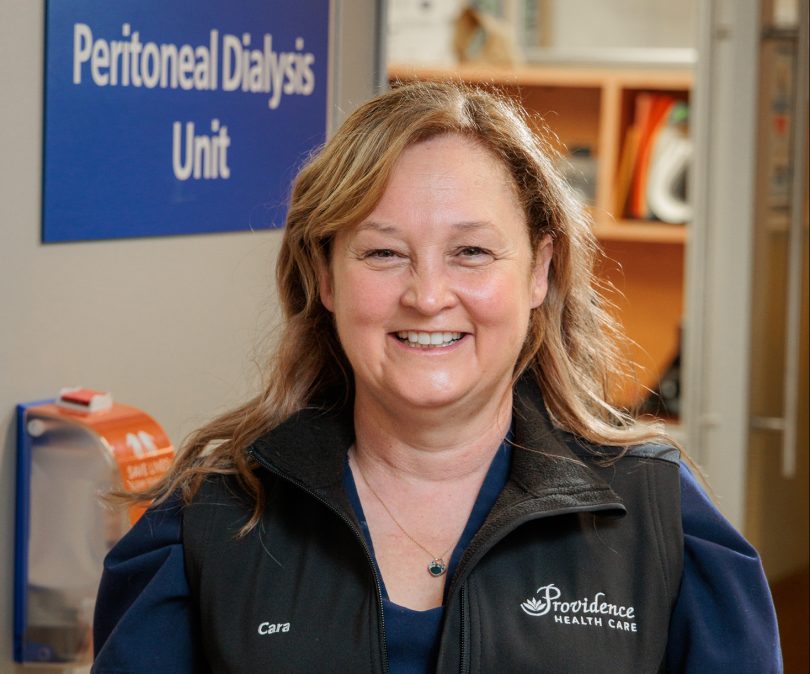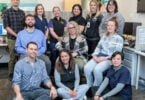National Nursing Week in Canada runs until May 14. At Providence Health Care, close to 3,000 nurses, representing a broad range of roles and disciplines across numerous sites care for hundreds of patients and residents every day. To mark this week, we’re profiling five of the many nurses who play such a vital role in the well-being of those Providence serves. This week we introduced Clinical Nurse Specialist PJ Matras, Registered Nurse Liji Mathew Nurse Practitioner Alina Steinberg and Registered Psychiatric Nurse Carmen Hanson. To wrap up the series, we profile LPN Cara Muller.
As a Licensed Practical Nurse (LPN) for almost 30 years now, Cara Muller has seen a host of changes in her time at St. Paul’s Hospital. From an increase in the scope of practice for LPNs to a shift in more patient-centred practice, she’s experienced a number of transitions along the way since she first started there in 1994.
The flexibility and adaptability that she’s developed over the years as she’s worked in programs such as medicine, emergency and surgery continues to serve her well in her role in the Peritoneal Dialysis Clinic, a unique type of kidney dialysis the patient performs at home.
“One of the things I enjoy most about my current work,” she says, “is the close relationships with patients and their families that I develop while providing them with ongoing education, support and monitoring of their treatment.”
Empowering patients and families
Designed to allow for a more personalized and comfortable treatment experience, peritoneal dialysis empowers patients and their families to become experts in their own care. This type of care enables the patient to have more flexibility and freedom in their daily life and allows some patients to live remotely and stay in their home community.
“Ultimately, we’re looking to help patients develop greater autonomy and independence and be able to perform much of their own dialysis care,” explains Muller. “My role involves a combination of patient care, education, and collaboration with other healthcare professionals to help patients and their family members develop an increased understanding of their needs and treatment.”
Peritoneal dialysis allows patients to filter waste and excess fluid from their blood using their peritoneum – a membrane that lines the abdominal cavity. Muller takes pride in seeing patients become the expert in their own care, and taking active role in their health care.
Continuous learning makes for a rewarding career
As the field of peritoneal dialysis continues to evolve, Muller is always learning. Since completing a BCIT certification program for nurses many years ago, she has attended conferences, workshops and online courses focused not only on peritoneal dialysis, but also on related topics like renal physiology, nutrition and infection control.
Whether it’s the daily reviews of chart and lab results, planning her visits with each of her patients, or working with physicians, social workers and dietitians to make sure that patients receive comprehensive care, Muller appreciates the ongoing learning she’s immersed in on a regular basis.
“I have a very fulfilling and meaningful career because nursing offers such a wide range of opportunities for personal and professional growth,” she says.
“Seeing patients become the expert in their own care and taking active role in their health care is extremely rewarding.”





